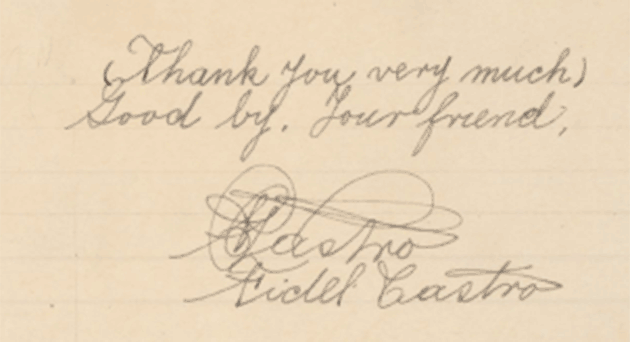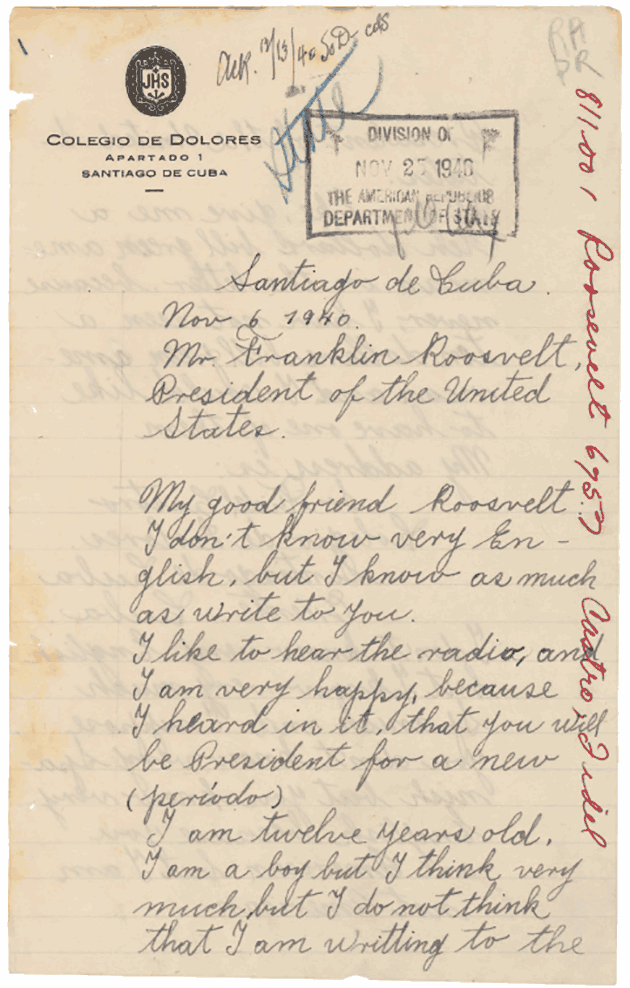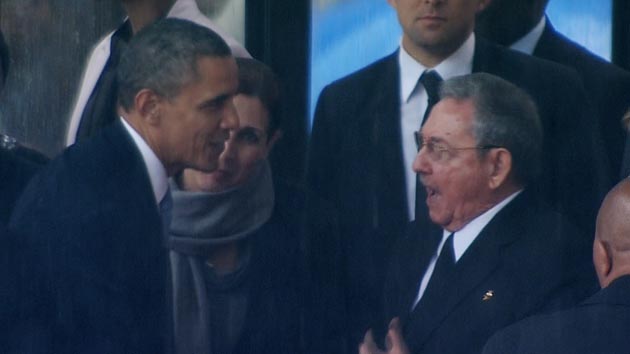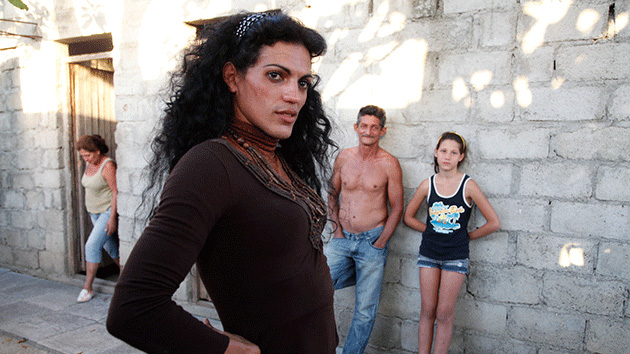In November 1940, a young Cuban student named Fidel Castro sent a handwritten letter to President Franklin D. Roosevelt. Writing in English, Castro congratulated the president on his reelection and requested “a ten dollars bill green american…because never, I have not seen a ten dollars bill green american and I would like to have one of them.” Thinking strategically, the future Cuban dictator also offered access to his country’s iron to build American ships.
He signed off with a flourish:

The letter from the now 88-year-old Castro (who was 14 when he wrote it, not 12 as he said) now resides in the National Archives. FDR probably never saw the letter. Castro did receive a response—but no cash—from the US Embassy in Havana. The polite snub officially marks the first exchange between Castro and the United States—and the beginning of a long, acrimonious relationship that may be about to thaw.
Text of the letter (errors and all):
Mr Franklin Roosvelt, President of the United States.
My good friend Roosvelt I don’t know very English, but I know as much as write to you.
I like to hear the radio, and I am very happy, because I heard in it, that you will be President for a new (periodo).
I am twelve years old.
I am a boy but I think very much but I do not think that I am writing to the President of the United States.
If you like, give me a ten dollars bill green american, in the letter, because never, I have not seen a ten dollars bill green american and I would like to have one of them.[…]
I don’t know very English but I know very much Spanish and I suppose you don’t know very Spanish but you know very English because you are American but I am not American.
(Thank you very much) Good by. Your friend,Fidel Castro
If you want iron to make your ships I will show to you the bigest (minas) of iron of the land. They are in Mayari Oriente Cuba.


















